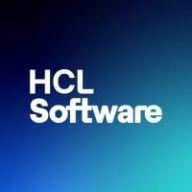

SUSE Linux Enterprise and HCLTech Informix are competing solutions in enterprise-level environments. SUSE Linux Enterprise appears to have an edge due to its flexible pricing and robust support, while HCLTech Informix excels in advanced database features for organizations focusing on data processing.
Features: SUSE Linux Enterprise is recognized for high availability, strong security capabilities, and adaptability across various hardware. HCLTech Informix is strong in handling complex data structures, provides advanced analytics, and is valuable for data-intensive applications. Informix has specialized database features that enhance its performance in data-heavy environments.
Ease of Deployment and Customer Service: SUSE Linux Enterprise offers streamlined deployment with comprehensive customer support that facilitates easy adoption and troubleshooting. HCLTech Informix, although more complex initially, is supported by responsive customer service to manage its sophisticated solutions. SUSE's deployment is slightly simpler, providing an edge in ease of use.
Pricing and ROI: SUSE Linux Enterprise's pricing flexibility makes it affordable for various budgets, often delivering a strong return on investment without high initial costs. HCLTech Informix might need more upfront investment, but its substantial ROI comes from advanced data capabilities, appealing to data-driven operations. Value from each product depends on whether cost efficiency or specialized database functionalities are prioritized.

Informix is a proven and well known platform for supporting applications developed by third parties and ISVs, primarily for use in transactional environments. This is because Informix combines high performance and functionality with minimal administrative requirements, making it the perfect choice for two or three tier IoT architectures where processing is required at the edge (in devices), at collection points (gateway layers), and in the cloud environment (AWS).
SUSE Linux Enterprise offers features like YaST for server management, seamless integration with Oracle and SAP, and a robust security setup. Renowned for stability, it efficiently supports workstations, SAP workloads, and cloud migrations across diverse industries.
SUSE Linux Enterprise is known for its lightweight design, high performance, and ease of installation. Its flexible architecture supports extensive documentation and efficient patching. The system uses the BTRFS file system for effective virtualization, and community support is significant. However, challenges include package updates causing conflicts, difficult initial setup and software management, high pricing, and support response times. Improvements in security compliance, cloud integration, hardware compatibility, and documentation are also needed.
What are SUSE Linux Enterprise's important features?Industries like healthcare and banking use SUSE Linux Enterprise for secure transactions and structured application deployment. It is also a choice for organizations involved in testing, automation, and web development, offering support for SAP HANA integration and facilitating cloud migrations.
We monitor all AWS Marketplace reviews to prevent fraudulent reviews and keep review quality high. We do not post reviews by company employees or direct competitors. We validate each review for authenticity via cross-reference with LinkedIn, and personal follow-up with the reviewer when necessary.